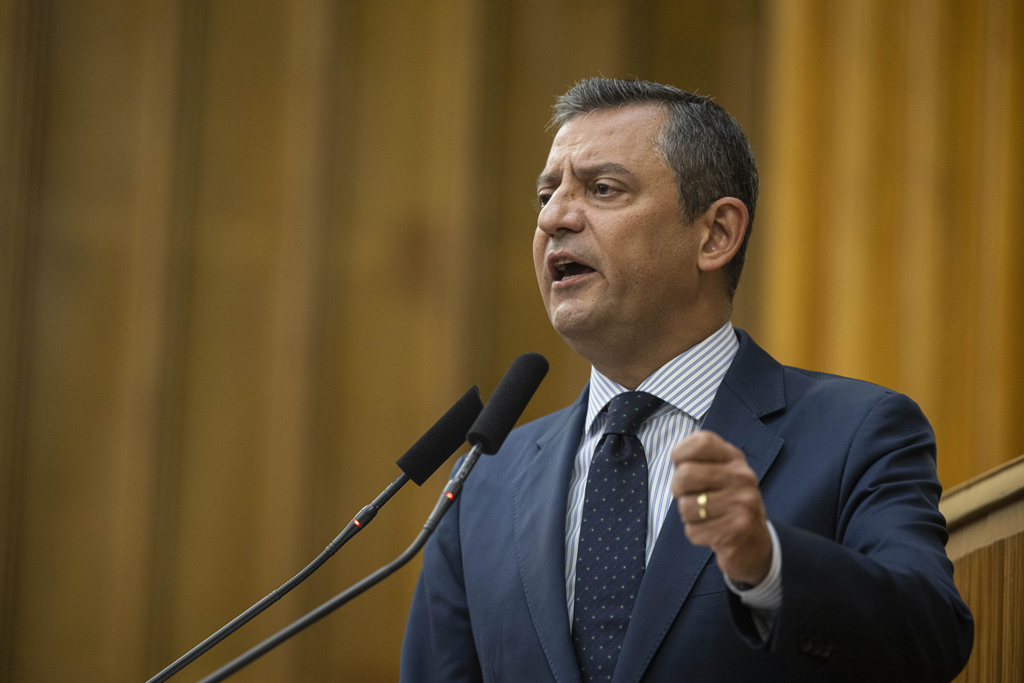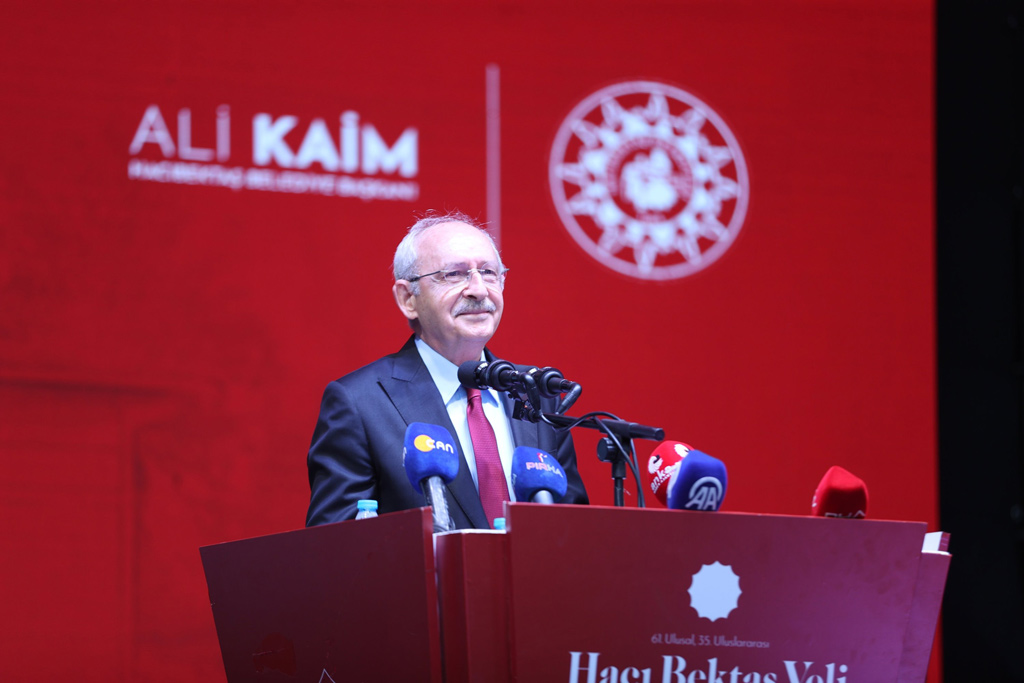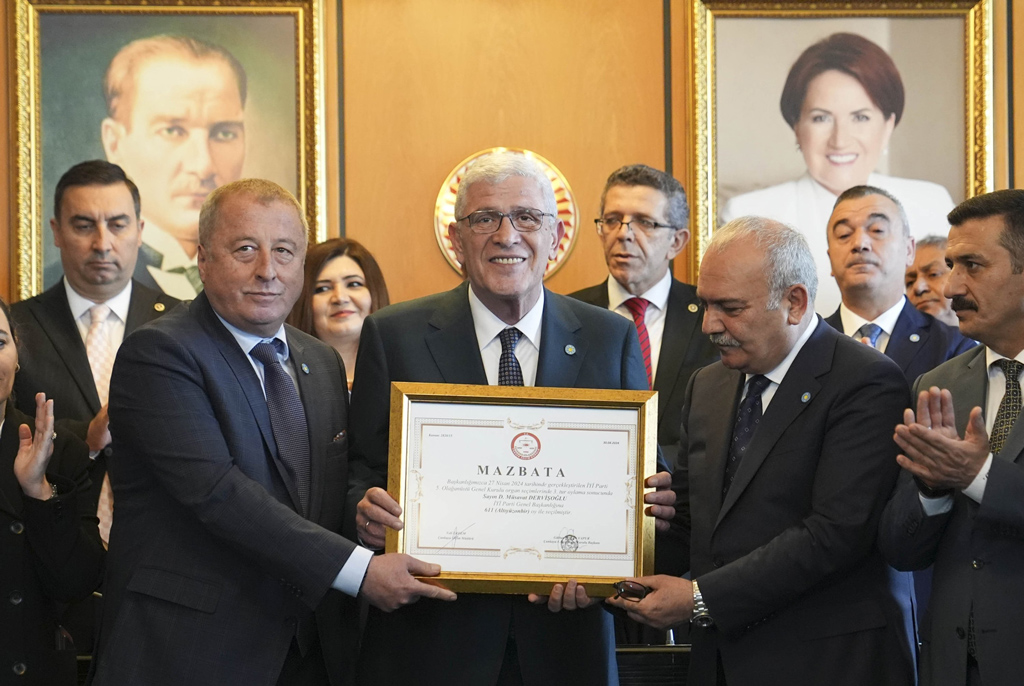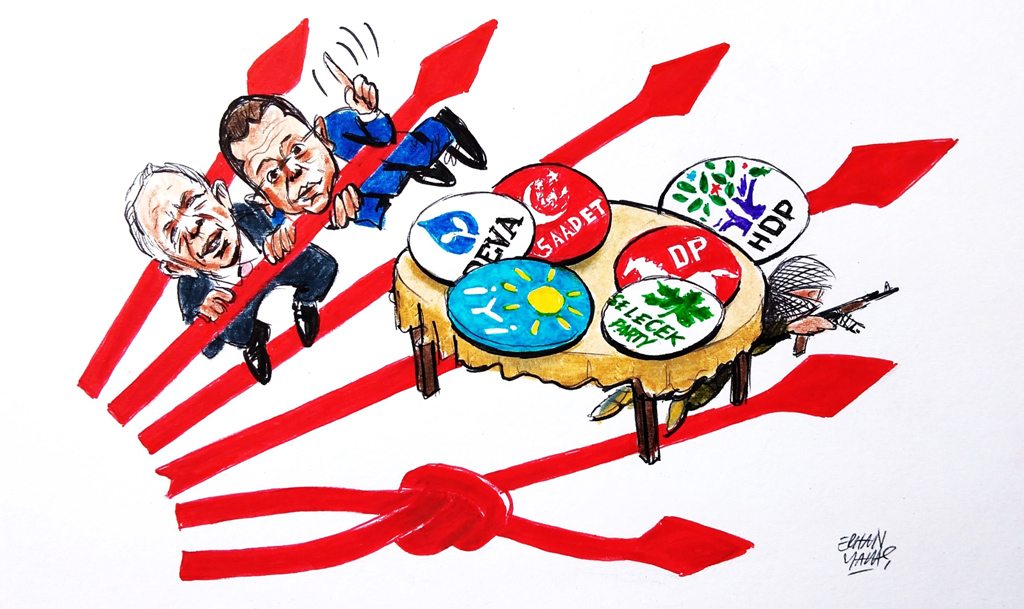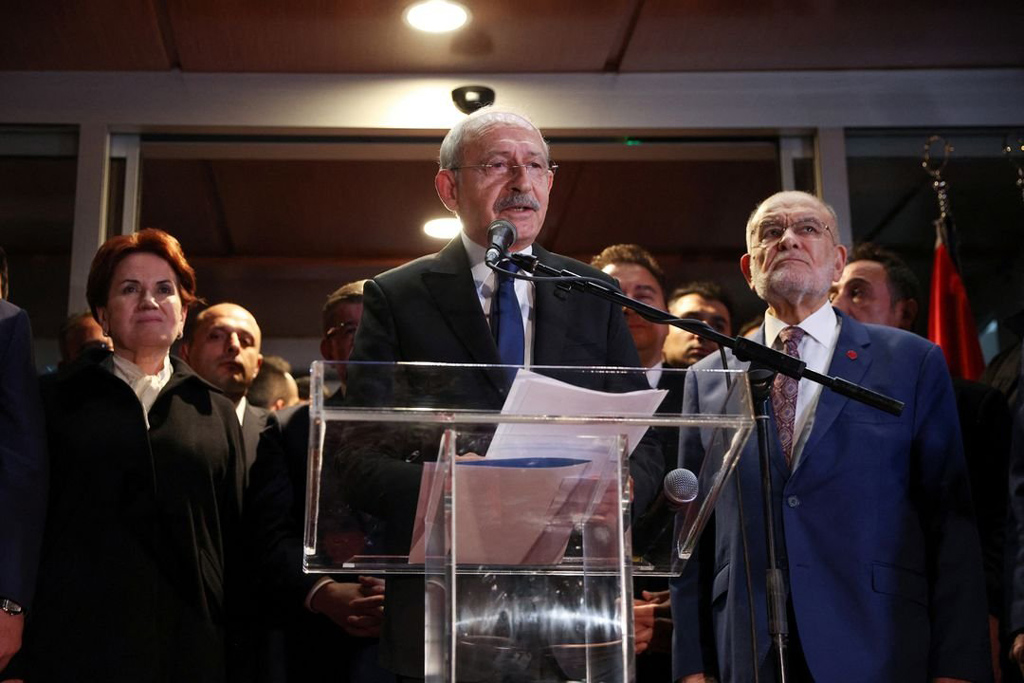
Turkish opposition persists in blame game as local elections loom
With just seven months left until Türkiye’s local elections, the opposition remains focused on assigning blame for their election defeat. One might argue that properly reflecting on what happened in May 2023 would benefit the new alliance model. Yet, commentators close to the main opposition Republican People’s Party (CHP) make accusations against the alliance’s right-wing members, whose spokespeople make negative remarks about the alliance – which hardly amounts to meaningful analysis. If anything, the current debate threatens to alienate non-ideological voters, whom the opposition attempted to win over to secure a simple majority.
Share
With just seven months left until Türkiye’s local elections, the opposition remains focused on assigning blame for their election defeat. One might argue that properly reflecting on what happened in May 2023 would benefit the new alliance model. Yet, commentators close to the main opposition Republican People’s Party (CHP) make accusations against the alliance’s right-wing members, whose spokespeople make negative remarks about the alliance – which hardly amounts to meaningful analysis. If anything, the current debate threatens to alienate non-ideological voters, whom the opposition attempted to win over to secure a simple majority.
The leadership battle within the CHP fuels those discussions as right-wing members of the opposition bloc appear to chart a new course for themselves. Whereas the Good Party (IP) is expected to unveil its plans today, the remaining parties – the Democracy and Progress Party (DEVA), Future Party (GP) and Felicity Party (SP) – are still trying to reject the charge of opportunism. In other words, they are in no position to stop playing defense and start developing policy alternatives.
More importantly, the far-right Victory Party’s (ZP) Chairperson Ümit Özdağ, who endorsed CHP Chairperson Kemal Kılıçdaroğlu in the presidential election’s second round, has been targeting all opposition parties, including the CHP. Step by step, various allegations – that some party’s members did not vote for the opposition candidate, that no opposition movement could possibly win alone, that the opposition bloc suffers from disloyalty, narrow ideological perspectives, secret protocols and nationalism – undermine the opposition’s alliance. The perception that joining forces with the CHP weakened all opposition parties, including the CHP itself, becomes entrenched thanks to the opposition’s own propaganda.
In President Recep Tayyip Erdoğan’s words: “Since the election, we have been reminded every single day that our country was on the verge of a cliff. (The opposition) hid countless betrayals and dirty deals. As the Pandora’s box opens, the true face of those, who used to lecture everyone on political ethics, comes into the light. I don’t want to imagine what the CHP, which handed over 38 parliamentary seats to (a group of fringe parties) with less than 1% of the vote, may have promised to terrorist organizations.”
Tags »
Related Articles

